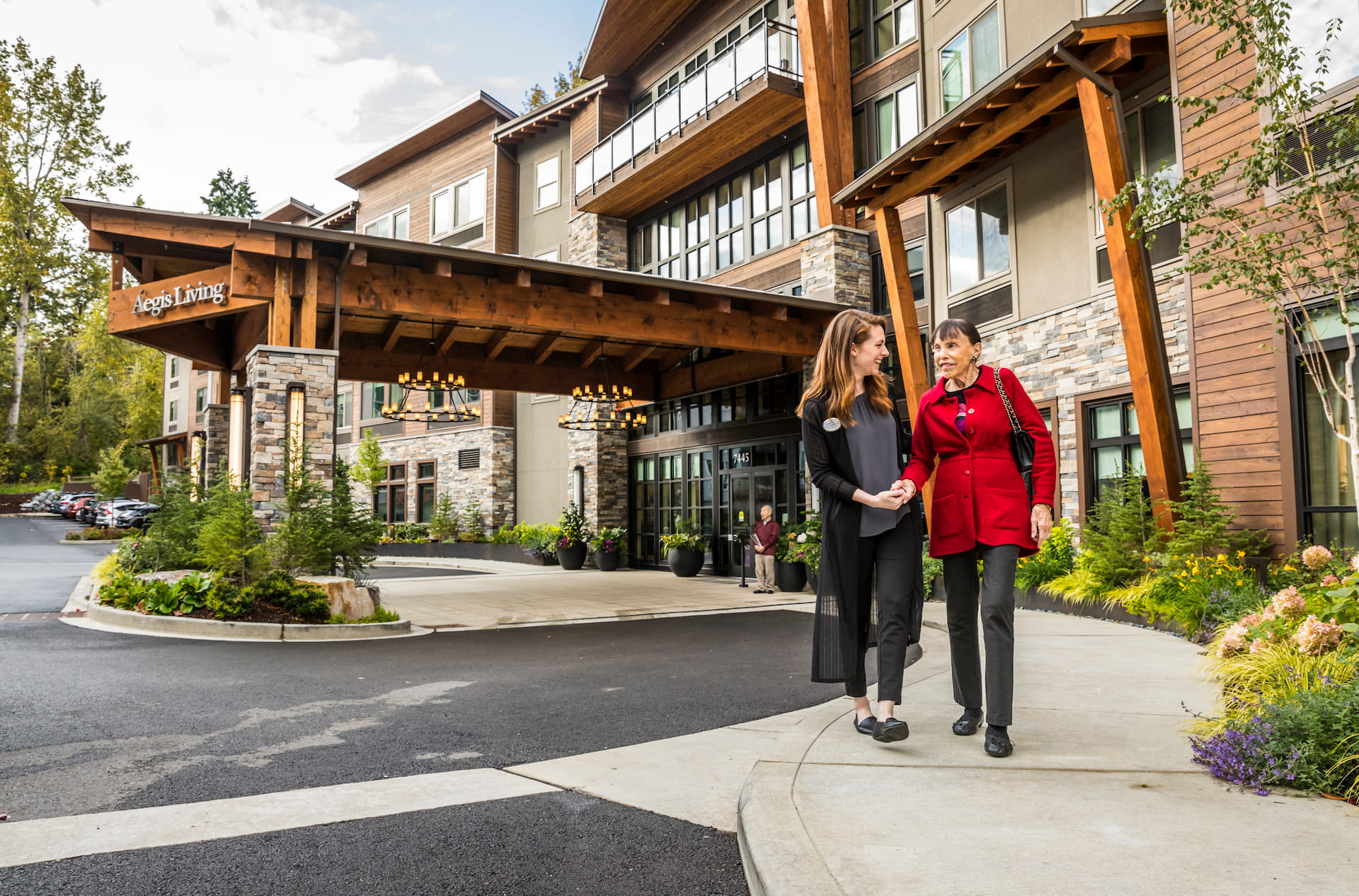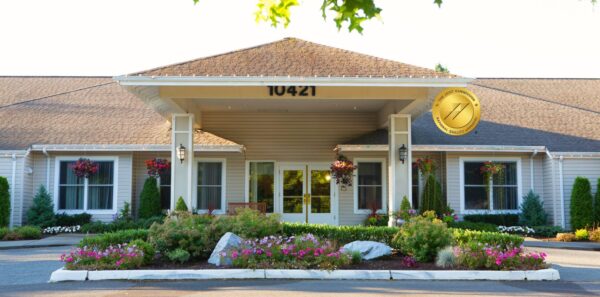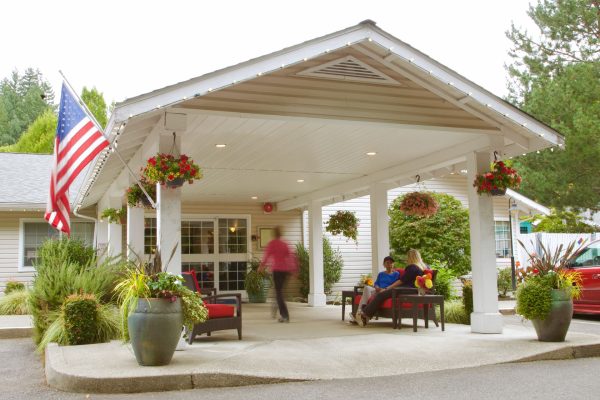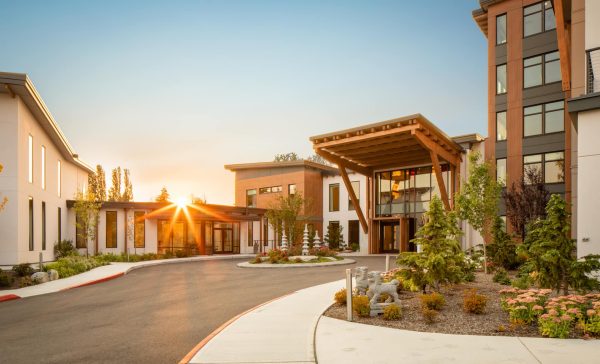
Benefits of Respite Care for a Caregiver
As the primary caregiver for a loved one, you don’t want to burnout. You are doing a great job, but the stress and strain can catch up with you if you don’t take time for yourself. Respite care can benefit a caregiver for many reasons, including:
Stress Relief. The demanding situation can cause chronic stress, which is detrimental to all aspects of your health. It can deteriorate your physical wellbeing, as well as your mental health, potentially leading to anxiety, depression, and other issues. Respite care gives a little relief from the stress of your responsibilities by providing the time and space you need to heal and recuperate.
Staycation. Providing care to a person with many health issues doesn’t just take away from your work and social life—you may also find yourself neglecting your day-to-day responsibilities. Even a short staycation away from your caregiving responsibilities can allow you the time you need to take care of errands, chores, social visits, and quiet time you have missed.
Tend to Family. Focusing your attention on your parent or loved one may draw your attention away from other members of the family. By taking a week away on occasion, you can spend some valuable bonding time with your significant other, children, siblings, and friends. These relationships are important pieces of your support network and should not be neglected as you care for a senior loved one.
Caregiver Returns Refreshed. One can get exhausted by providing care, especially if the caregiver must also balance work and a family. Respite care allows the caregiver time to heal from the stress so that they can return to the role refreshed, rejuvenated, and ready to take on the duties involved. In fact, a short break can help prevent unintended neglect and feelings of resentment.
Benefits of Respite Care for Seniors

While respite care is designed to provide the caregiver a break, respite care benefits your parent or loved one too.
Socialization. In addition to adding a little excitement by providing a break from their daily routine, respite care at an assisted living community immerses your loved one in a warm and welcoming environment. Your parent or loved one will have the chance to meet other people their age and engage in activities geared toward seniors. Often, it can be such a rewarding experience that many seniors find that they prefer to spend their time at an assisted living community over receiving at-home care.
Ease a Transition. A short-term stay can also serve as a way for a senior to experience an assisted living community firsthand and determine if that’s the right situation for them. Many find that being around other adults their age provides a system of support that cannot be found even when surrounded by family. In these environments, they can interact with others and participate in activities and hobbies that they were once passionate about. Aegis Living’s short-term care is a wonderful way to test the waters of assisted living and experience what it would be like to live there full-time.
Types of Respite Care
In-Home Respite Care
If you care for a loved one who needs around-the-clock support, you may find yourself in need of a break. An in-home respite is an option for a caregiver to come into your home and care for your loved one. Typically, this option serves as a companion for your loved one to keep them company and occasionally help with light services. A home health aide can provide added care services, like helping with ADLs, including grooming, transferring, or medication management. The home health aide works independently but is overseen by a medical professional and typically costs more per hour. Some services will also help with making meals, laundry, and cleaning for an additional cost. An in-home respite is best suited for a caregiver who wants a break for the day to run errands, see friends, or self-care.
Out-of-Home Respite
Primary caregivers are often unaware that assisted living and memory care communities offer short-term stays for seniors. These temporary visits can last from a week to a month. If you need to take a business trip, family vacation, or a much-deserved break to recharge, families can rest assured that your senior loved one will be well cared for in an assisted living community. This type of care can be exceptionally comforting for someone caring for a senior with Alzheimer’s or another form of dementia. The professional care staff is equipped to manage the unique behaviors, personality traits, and forgetfulness that come with memory loss. Typically, the community will provide a fully furnished private apartment for your loved one to stay in. Your family member can take part in all activities, eat their meals in the dining room, and use the amenities during their stay. The staff can assist your loved one with ADLs, like bathing, grooming, or transferring. At Aegis Living, we make sure every respite stay resident feels welcome and a part of the community, even if they are there only temporarily.
Adult Day Center
An adult day center offers care for your loved one daily. As the primary caregiver, if you are working full time and need someone to look after your parent during the day, an adult day center offers safe and secure oversight of your loved one. Typically, the centers offer care 8 to 10 hours per day, and some even offer evening and weekend times. Adult day centers can either be a stand-alone building or as part of an assisted living or memory care community. Transportation and meals are usually included in the day rate. This choice is great if your loved one wants to be able to socialize with other seniors and take part in activities. Aegis Living offers day stay options for seniors in our Washington communities.
Cost of Respite Care
The cost associated with respite care will vary depending on the location or city, the services offered, amenities provided, and level of care. According to a Genworth 2019 Cost of Care Survey, the national daily average cost for respite care in an assisted living community was $133 per day, to bring in a home health aide was $144, and adult day centers average $75 per day. Typically respite care is paid out-of-pocket, but some long-term care insurance plans will cover the cost. Medicare will cover the cost of respite care if it’s associated with hospice care. And Medicaid is administered differently per state, so coverage options will need to be explored within the state where your parent or loved one resides.
Overcoming Obstacles of Respite Care
Cost
Your family may be concerned that respite care is out of your budget. Most often, respite care is paid out-of-pocket, so you may want to contact other family members to see if they would contribute to this expense or if your loved one has money to offset costs. Also, check if their long-term care insurance policy would pay for this expense. If you or your loved one has limited resources, you may want to see if they qualify for a scholarship, reduced fees, or available government programs. Paying for respite care may give the primary caregiver a break to continue giving care longer. For no-cost, family members can also cover care for a day or on a regular schedule to help alleviate the day-to-day pressure by offering breaks to primary caregivers.
Reliability of Care
Any time you are looking for senior care for your loved one, whether that is a short-term stay, daily care at a community, or hiring help, it is important to research your options. At an assisted living community or adult day center, you want to make sure the care staff is well-trained and qualified. We suggest that you take a tour, look at community reviews, and ask friends or family for recommendations. When you are touring a community, we have several tips to help you determine the best fit for your loved one. If hiring someone to come into your home, we suggest you use a reputable company to supply a home health aide, interview the person thoroughly before using, and check their references carefully.
Caregiver Guilt
Respite care is not a failure. It’s asking for help, so you avoid burnout. There is no shame in reaching out for help, and often, family and friends are more than willing and happy to pitch in. Sometimes, a stressed-out primary caregiver needs a break—time to themselves to recuperate and recharge. You may feel guilty or ashamed that you need time away from your parent or loved one, but it’s essential to your mental health, and a break can be exciting and good for your loved one’s wellbeing and happiness too. They can socialize, meet new people, and take part in activities.
If you need respite care for your loved one, contact your local Aegis Living to arrange a tour and discuss your daily or short-term care needs.

Next up
Aegis Living Difference
CEO and founder, Dwayne Clark, built Aegis Living with the determination of creating an alternative to the current senior housing options available. With more than 35 senior housing communities and growing, he has set new standards in the senior housing industry. Dwayne realized there was a better way to care for and serve our aging population. While working his way up in the assisted living industry as a young professional, he kept a box of dreams, ideas, and innovations that would later form the foundation of Aegis Living. Today, each community has a similar “black box” to collect these ideas from our staff and continue to revolutionize the senior housing industry.
Ready to Find Your Perfect Community?
See what Aegis Living has to offer near you! If you’re feeling overwhelmed, just give us a call and we’ll be happy to guide you.
Communities Nearby

Kent
10421 SE 248th St
Kent,
WA 98030

Issaquah
780 NW Juniper St
Issaquah,
WA 98027

Aegis Gardens (Newcastle)
13056 SE 76th St
Newcastle,
WA 98056